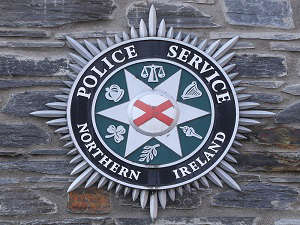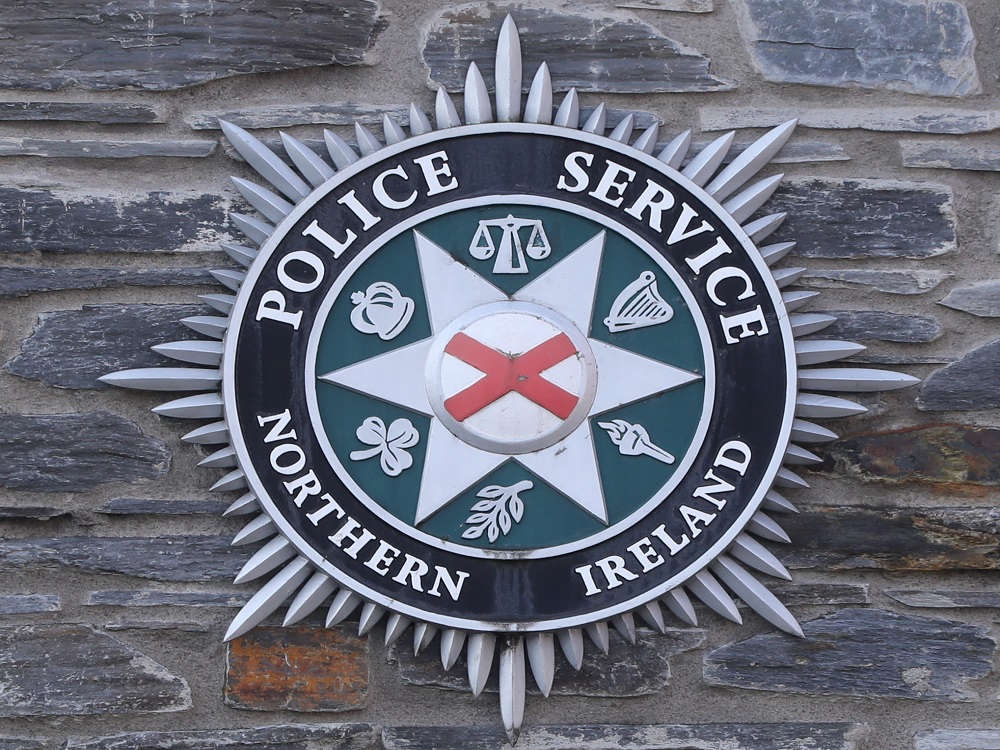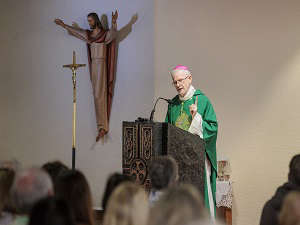
Jonathan McCambridge (PA)
Police in Northern Ireland have warned of the potential of dissidents launching attacks on their officers in Londonderry on Easter Monday.
Assistant Chief Constable Bobby Singleton said the force has received “strong” intelligence that dissidents are planning to launch terror attacks against officers on the bank holiday.
PSNI Chief Constable Simon Byrne said that officers would be moved to frontline duties to counter any potential threats, in a policing strategy that he said had not been used in years.
He said this reflected the “exceptional circumstances” ahead of this Easter weekend.
The warning comes ahead of US President Joe Biden’s much-anticipated visit to Belfast on Tuesday.
Mr Biden’s visit, which will also include trips to Dublin, Co Louth and Co Mayo in the following days, will have a strong focus on the 25th anniversary of the Good Friday Agreement, which falls on Easter Monday.
The warning of an attack comes after MI5 recently raised the terrorism threat level in Northern Ireland to severe, meaning an attack is highly likely.
This followed the gun attack in Co Tyrone on senior detective John Caldwell, who has been left with life-changing injuries.
Police have blamed the New IRA for the attack.
“It’s going to be a really significant weekend for the PSNI,” Mr Singleton told a press conference in Belfast.
“There is also very strong community intelligence specifically coming forward in respect of Monday’s events in Derry/Londonderry and a real concern that there may be attempts to draw police in to serious public disorder and to use that then as a platform to launch terrorist attacks on police as well.
“So going into our operation that’s something that is very clearly right at the forefront of my mind, the minds of the commanders that will be delivering that and of course our officers as well.”
Easter Monday is the day dissident republicans traditionally mark the anniversary of the Easter Rising rebellion against British rule in 1916, with a parade set to take place in Londonderry.
Mr Singleton said while dissident republican intent to kill police officers remained the same, he said officers were concerned they may use public disorder in Londonderry as a platform to launch attacks.
“The intent remains the same. I think as I see it, it’s the risk, it’s the platform potentially, in particular, that public disorder may present,” he said.
“We don’t have to go too far back, sadly, to see precisely that kind of scenario playing out in Derry/Londonderry in the past.
“So that is absolutely something that’s in the mind of myself and the police commanders as we approach that event, and it will be something that we’ll have to keep under constant review depending on how things develop on the day.”
When asked about whether guns or explosives could be used to target police in Londonderry, Mr Singleton said: “We’ve seen that in the past and, on that basis, we have to be prepared for that and we will be prepared for all eventualities on Monday.”
Mr Byrne said that officers are being moved on to frontline duties to boost visibility and counter the increased terrorist threat.
Briefing the Policing Board in Belfast, the Chief Constable said the overall tone in both the operational threat and the resourcing picture facing the PSNI is “stark and sombre”.
He said: “We are now dealing with a severe terrorist threat, which means that an attack is highly likely right across Northern Ireland.
“The thing to stress is the main focus of these attacks continues to be police officers, both on and off duty, and their families.
“It will also include prison officers and military personnel.
“The style of attack that we are dealing with and trying to frustrate is gun attacks and bomb attacks on these people by a small number of determined dissident terrorists.
“What this means is that working with our security partners, there is an assessment about an increase in their intent and capability to cause serious harm to us in the next six months.”
Mr Byrne said the increased threat came at a time of “unprecedented policing demand” in Northern Ireland.
He said: “After careful assessment we have decided that in order to maximise the safety of our officers and staff and the wider community, it is necessary to increase our operational capacity immediately.
“In policing terms we have initiated what we call Operation Inspire level four.
“What that means is that in some cases operational officers across the service have moved to 12-hour shifts and officers in a number of non-frontline roles will move to support the collective effort to focus on preventing further terrorist outrage and actually increasing our patrol visibility across the country.
“This is the first time in a number of years we have had to activate this plan.
“It is a reflection of the quite difficult and exceptional circumstances we find ourselves in.”
Mr Byrne said the plan would remain in place for around 10 days and would then be reviewed.
The Chief Constable added: “If that wasn’t enough, we are on the cusp of the Easter period which is traditionally quite busy. There is a significant policing operation in place.
“There are 90 notified parades and events taking place between Good Friday and Easter Tuesday.
“In addition our planning is based on experience which takes into account the risk and likelihood of policing non-notified parades.
“This may include the display of paramilitary uniform and paramilitary shows of strength and we will have resources in place to deal with that.
“We are also assuming attempts will be made to draw us into situations which may likely cause disorder over the next few days.”
PSNI Assistant Chief Constable Chris Todd said there was no specific intelligence that the anniversary of the Good Friday Agreement was acting as an additional motivation for dissident republicans to launch attacks.
“We plan for the worst and we hope for the best to be quite frank, we will respond to the intelligence as it develops, we have no such intelligence that would support that at the moment,” he said.



 New IRA had planned earlier attack on detective John Caldwell, court told
New IRA had planned earlier attack on detective John Caldwell, court told
 Man in court over murder of Stephen Brannigan and attack on priest in church
Man in court over murder of Stephen Brannigan and attack on priest in church
 Co Down community ‘shaken and upset’ after priest attack and death of man
Co Down community ‘shaken and upset’ after priest attack and death of man
 Murder probe may be linked to ‘brutal attack’ on priest, say police
Murder probe may be linked to ‘brutal attack’ on priest, say police
 Woman and two children injured in road crash
Woman and two children injured in road crash